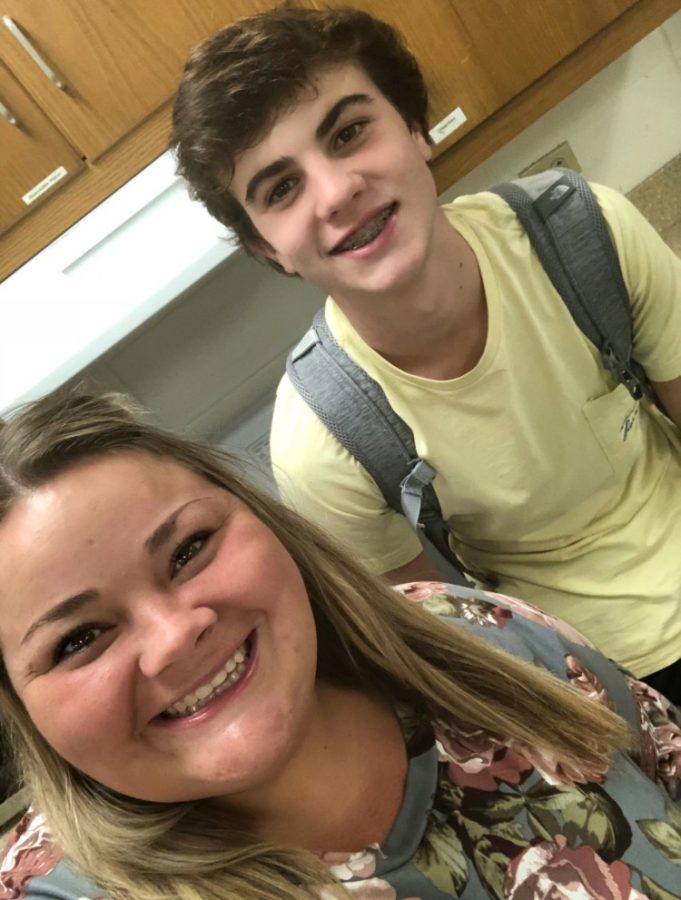Ms. Spicer Interprets at Greenwood
Ms. Spicer takes a break from interpreting to hang out with Cade Stinnett, one of the basketball players she coached last year at Drakes.
September 6, 2018
Ms. Spicer is an interpreter here at Greenwood for a student who is deaf. Ms. Spicer’s job is to help this student learn as much as they can despite being deaf. She signs everything the teacher says, everything on the announcements, everything the other students say, and everything she wants to say to the student. Ms. Spicer loves being an interpreter, but she didn’t actually know what interpreting was until college.
Ms. Spicer went to college at Eastern Kentucky University wanting to take pictures of crime scenes. Someone then told her that that wasn’t a real job, so she had to change her major.
One day in class the professor asked if she would be interested in interpreting. Ms. Spicer didn’t even know what that meant but agreed to do it. After starting the class she realized that she loved it.
She has now been interpreting for six years and has had ten students. Ms. Spicer prefers middle school students because it is an awkward stage, but has a special connection to lots of high school students this year.
There are several different kinds of sign language. There is American Sign Language (ASL) which is most commonly used among deaf people and follows a completely different grammatical structure than English. There is also Pidgin Signed English (PSE) which uses signs, but has more of an English word order. PSE is most commonly used with someone who learns sign language later in life. The last common sign language is Signing Exact English (SEE). SEE is mostly used in an educational setting to help the child grasp English and sign language. When using SEE, you sign everything in the exact English order, so it has some signs that don’t even exist in ASL. Ms. Spicer’s degree is in American Sign Language, but she has picked up PSE as she has interpreted. Ms. Spicer prefers ASL since that is what she learned, but will be flexible with the kids she interprets for.
The biggest difference between ASL and English is how much a deaf person relies on facial expressions. If someone speaking English is being sarcastic, you can hear it, but if someone is deaf, they will be able to see the sarcasm on the interpreter’s face.
Ms. Spicer’s favorite part about being an interpreter is the relationships with the students. Since Ms. Spicer doesn’t control student’s grades, she has found that she is easier to talk to than other adults in the school building. The hardest part for Ms. Spicer is finding a way to interpret high school level classes accurately, but still in a way the student can understand. Ms. Spicer loves her job and couldn’t imagine herself doing anything else!



